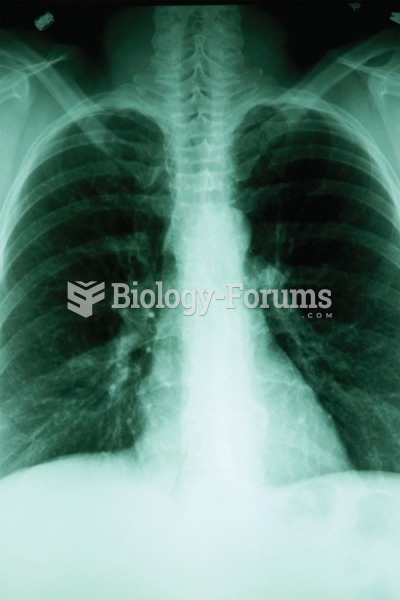Answer to Question 1
1
Rationale 1:Angina usually goes away with rest, and is rarely fatal, but a myocardial infarction requires immediate treatment, and can be lifethreatening.
Rationale 2:There is no way to tell the difference between the two. You will be treated for a myocardial infarction is incorrect because ECG monitoring and blood levels can show an MI.
Rationale 3:Both are caused by a clot blocking the coronary arteries. Angina occurs if a small vessel is blocked, and a myocardial infarction occurs if a large vessel is blocked is incorrect because the primary cause of MI is advanced coronary artery disease. Plaque buildup can severely narrow one or more branches of the coronary arteries. Pieces of plaque can break off and lodge in a small vessel that serves a portion of the myocardium. Deprived of its oxygen supply, the affected area of the myocardium becomes ischemic, and cardiac muscle cells begin to die unless the blood supply is quickly restored.
Rationale 4:Angina does not cause severe chest pain, but a myocardial infarction always causes severe chest pain is incorrect because both can cause severe chest pain. An MI does not always cause severe chest pain.
Global Rationale: Angina usually goes away with rest, and is rarely fatal, but a myocardial infarction requires immediate treatment, and can be lifethreatening. ECG monitoring and blood levels can show an MI. Both are caused by a restricted blood flow and oxygen to the coronary vessels. The primary cause of MI is advanced coronary artery disease. Plaque buildup can severely narrow one or more branches of the coronary arteries. Pieces of plaque can break off and lodge in a small vessel that serves a portion of the myocardium. Deprived of its oxygen supply, the affected area of the myocardium becomes ischemic, and cardiac muscle cells begin to die unless the blood supply is quickly restored.
Answer to Question 2
1
Rationale 1: Dietary changes that should be taught to a client with angina include decreasing fat and salt intake and limiting alcohol intake.
Rationale 2:There are no dietary restrictions for a person diagnosed with angina is incorrect because the client should decrease salt and fat intake and limit alcohol intake.
Rationale 3: Limit smoking is not a dietary instruction. Increasing sugar intake will interfere with keeping blood glucose levels within normal range.
Rationale 4:A client should not be instructed to increase foods high in cholesterol.
Global Rationale: Dietary changes that should be taught to a client with angina include decreasing fat and salt intake and limiting alcohol intake.







